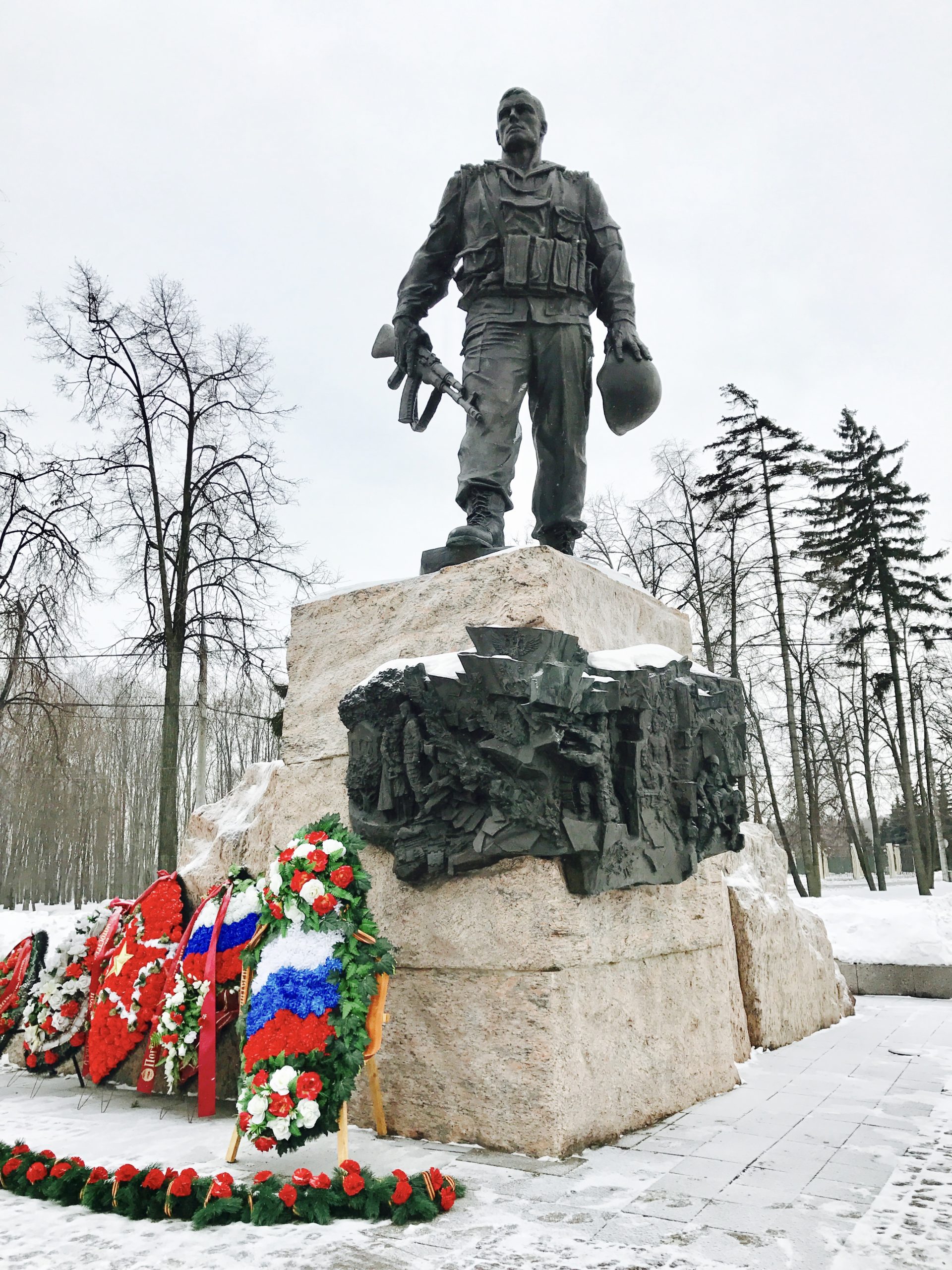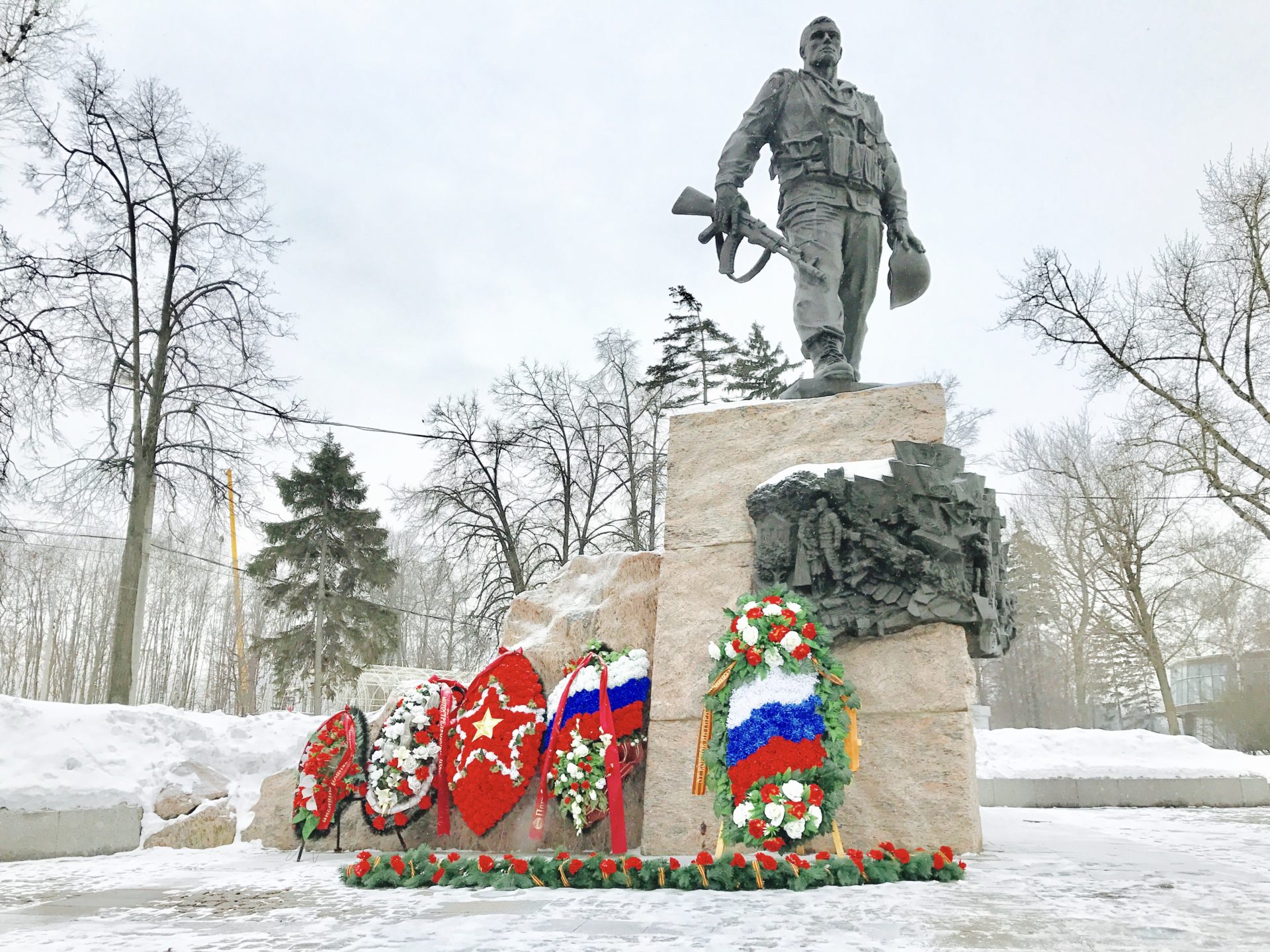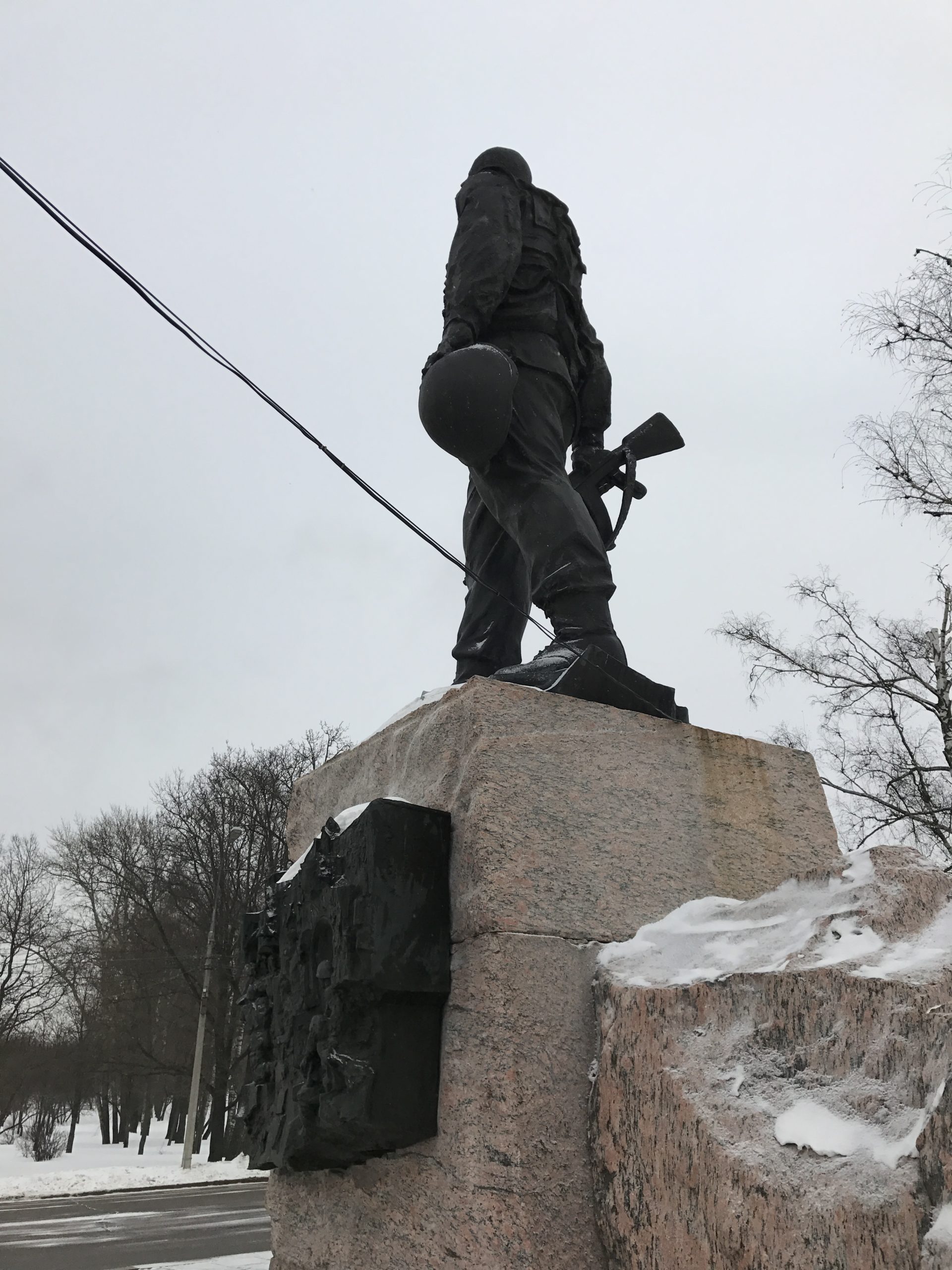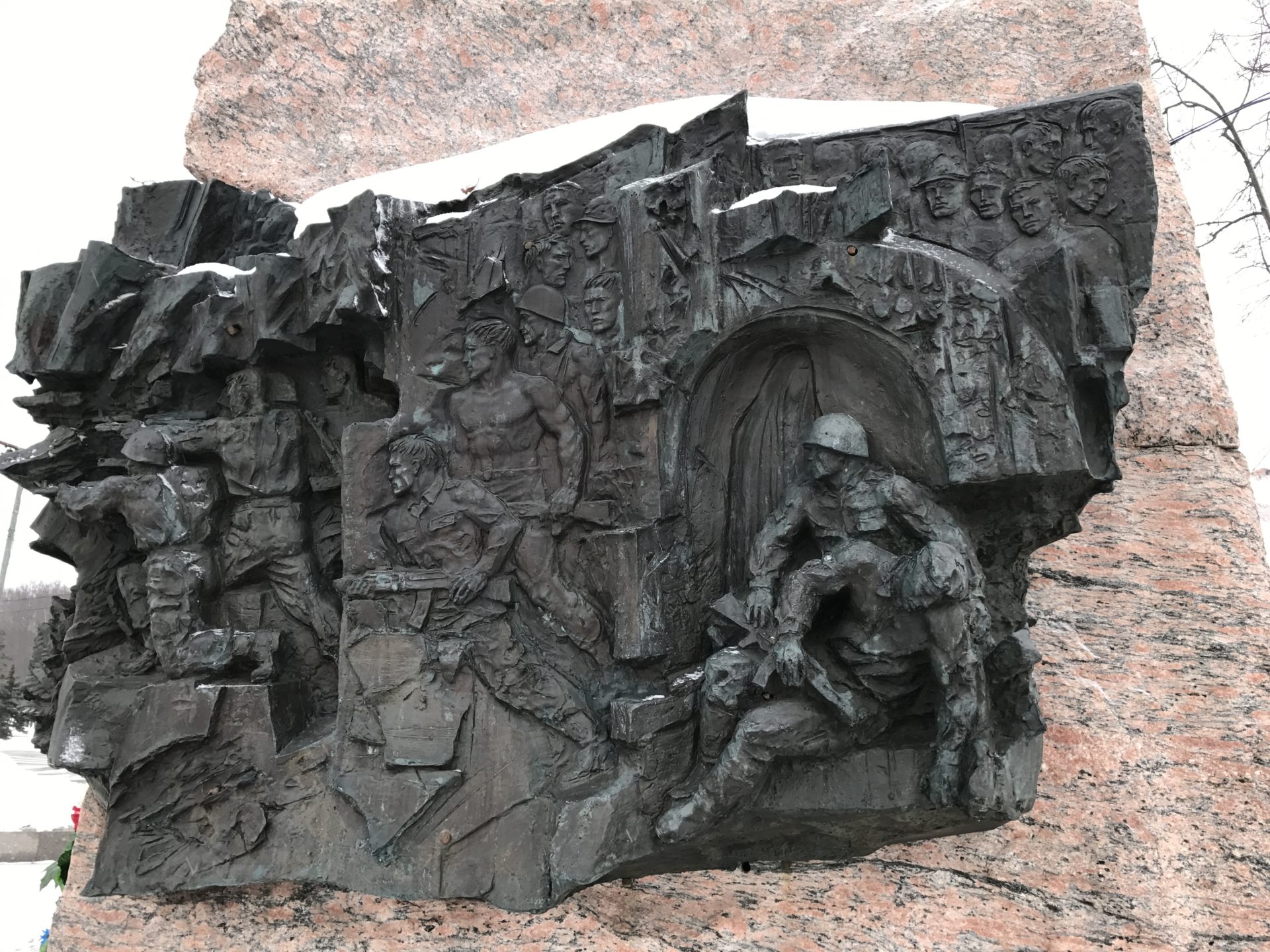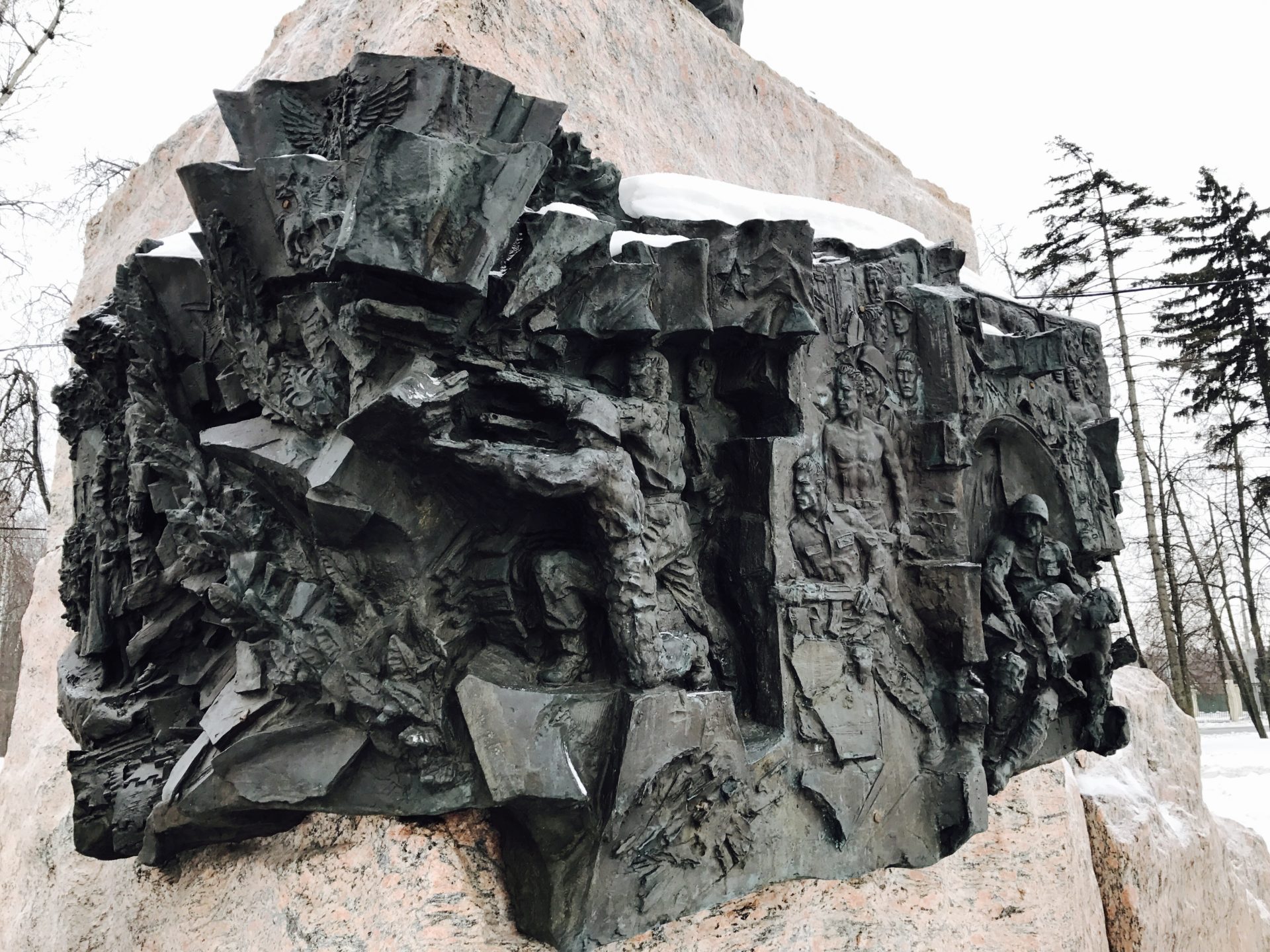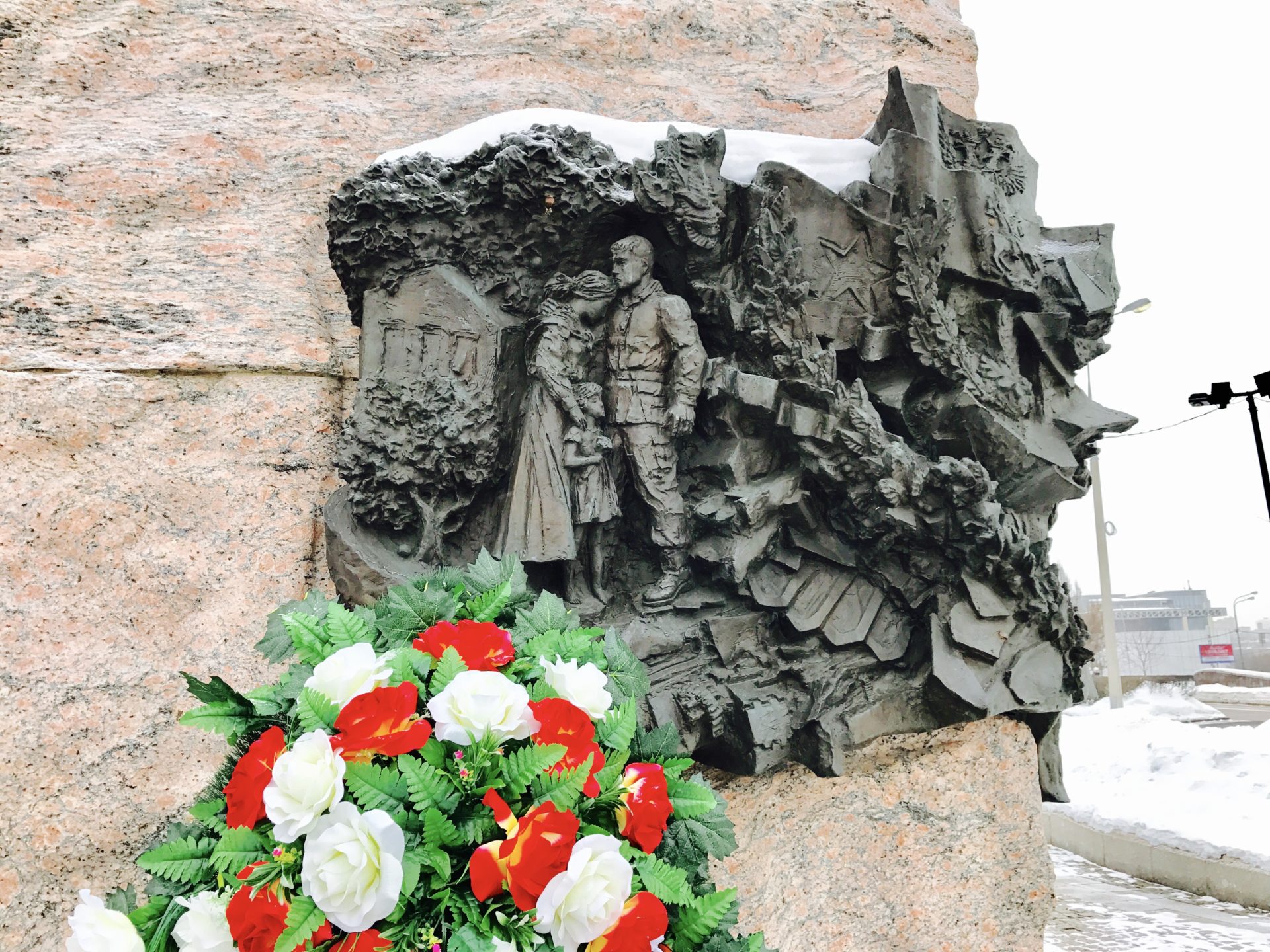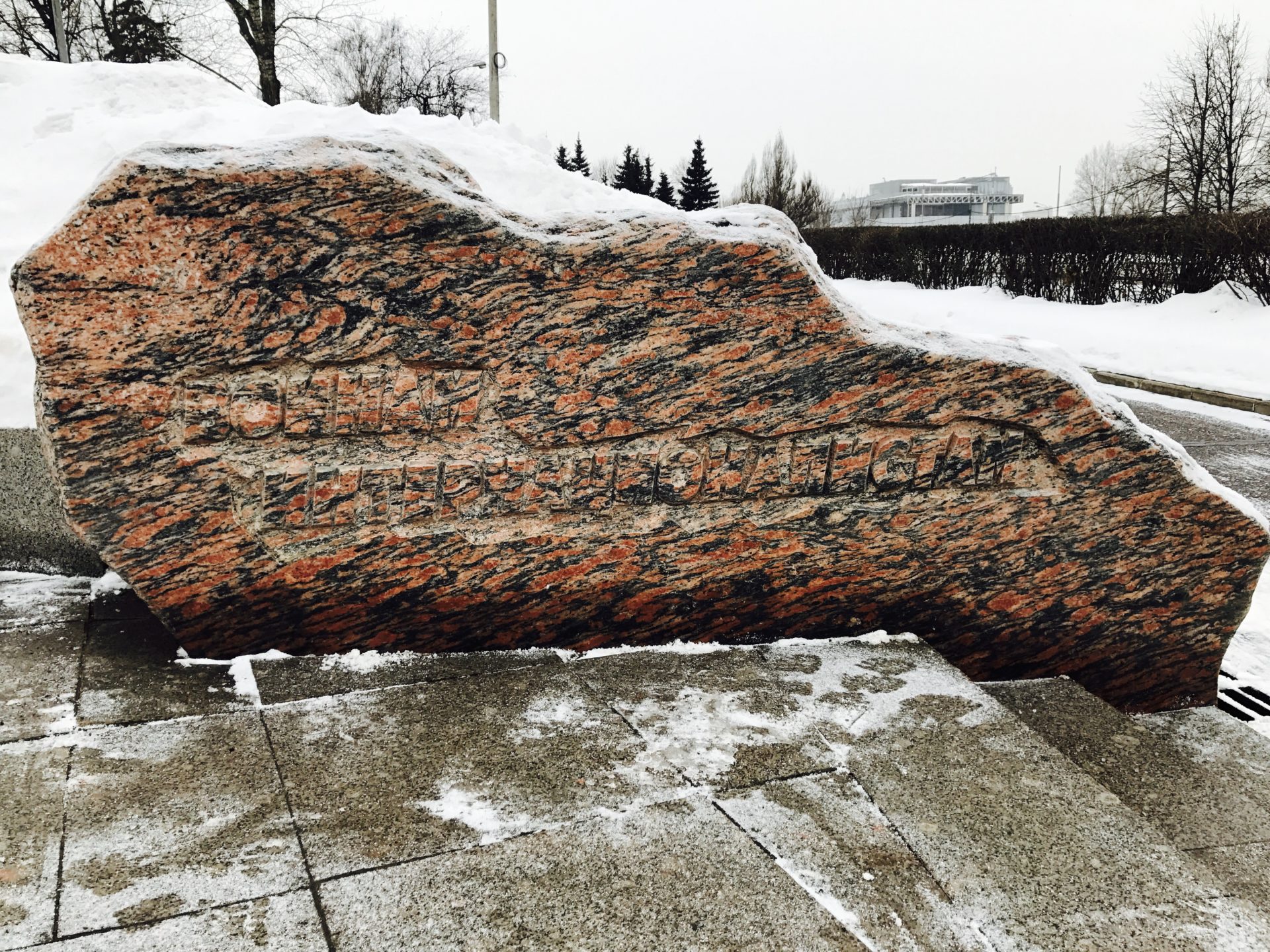Veteran Stories
[FOREIGN LANGUAGE]
>> My name is Vladimir Polage Arsenio. I was born in 1938, and I was born in a big, huge family. There were 11 children in our family.
[FOREIGN LANGUAGE]
>> My high gradation of high education, I came to Moscow to complete ... to continue my education.
[FOREIGN LANGUAGE]
>> When I entered college, I studied for 3 years.
[FOREIGN LANGUAGE]
>> And I had ... After graduation of college, I had to go to army to serve for the army.
[FOREIGN LANGUAGE]
>> I had a duty to go to army without any exceptions, and I was a 4th-year student at that time.
[FOREIGN LANGUAGE]
>> In '50s, 25th of July, there was a broke up in war at that time.
[FOREIGN LANGUAGE]
>> And the Soviet Union, the government of Soviet Union ...
[FOREIGN LANGUAGE]
>> ... didn't support, didn't want to support so much, so as we didn't have enough resources to support that situation.
[FOREIGN LANGUAGE]
>> After the army, I was ... I went to veterans service, special college for special technique, space kind of aircrafts, special.
[FOREIGN LANGUAGE]
>> We started equipment, military equipment, which would were not used yet because that was brand-new technologies.
[FOREIGN LANGUAGE]
>> After mutual agreement between North Korea and Soviet Union, there was no agreement for support, mutual support, but Kim Il-sung, he insisted Soviet Union to support in that war, in Korean War.
[FOREIGN LANGUAGE]
>> Stalin was the request of Mao Zedong and Kim Il-sung ...
[FOREIGN LANGUAGE]
>> ... by request made a decision to support North Korea ...
[FOREIGN LANGUAGE]
>> ... through a nation and special rated technical equipment with a lot of special military equipment.
[FOREIGN LANGUAGE]
>> In the beginning, Stalin thought that we will just give an equipment and not people, just give equipment, but people were not supposed to be involved in the war.
[FOREIGN LANGUAGE]
>> But when Koreans got that equipment, weapons, they couldn't work because that equipment was special on the radioactive airplanes, special.
[FOREIGN LANGUAGE]
>> The speed was really high speed.
[FOREIGN LANGUAGE]
>> And the [INAUDIBLE] radioactive technical equipment, it was not ... they were ... They couldn't have a ... They couldn't be involved in the war due to lack of knowledge, how to use that equipment. They couldn't fight with ... in the war.
[FOREIGN LANGUAGE]
>> So the Soviet Union made a decision ...
[FOREIGN LANGUAGE]
>> ... to give people and the technology and the equipment ...
[FOREIGN LANGUAGE]
>> ... the airplanes, pilots and [INAUDIBLE] all specialists who were involved who were high specialist to use who knew how to use those equipment and those high technology weapons.
[FOREIGN LANGUAGE]
>> There was a special ... They were created a special conference, which involved a lot of high ... a lot of group of ... Different group of, so to say, military, military as a group and a lot of high generals and, so to say, highly specialists, highly qualified specialists.
[FOREIGN LANGUAGE]
>> I can say begin ... to begin to shoot first, but ...
[FOREIGN LANGUAGE]
>> ... Americans helped South Korea a lot. They supported.
[FOREIGN LANGUAGE]
>> The purpose was to take over North Korea.
[FOREIGN LANGUAGE]
>> Then in the beginning, the North Korean army crossed ...
[FOREIGN LANGUAGE]
>> ... the border, and there were no any agreements. There were no any mutual discussions at that time.
[FOREIGN LANGUAGE]
>> [INAUDIBLE] in South Korea, and they were planning to use military methods to solve this issue.
[FOREIGN LANGUAGE]
>> Due to military political situation, happened that way.
[FOREIGN LANGUAGE]
>> We didn't want that North Korean could be under South Korea, could be taken over by South Korea, we didn't want, so this kind of actions already they were taken by the commander of chiefs ...
[FOREIGN LANGUAGE]
>> ... of all unified army by Douglas MacArthur.
[FOREIGN LANGUAGE]
>> He wanted to use the [INAUDIBLE] to ...
[FOREIGN LANGUAGE]
>> ... until they used the atomic weapon.
[FOREIGN LANGUAGE]
>> The government [INAUDIBLE] stopped him ...
[FOREIGN LANGUAGE]
>> ... and thought it will be a third World War, World War III, so Truman liberated the US MacArthur to ask him not to be a Commander of Chief over the American Army.
[FOREIGN LANGUAGE]
>> And the 38th parallel ...
[FOREIGN LANGUAGE]
>> ... the border between South and North Korea ...
[FOREIGN LANGUAGE]
>> ... in the end of war in 1951 ...
[FOREIGN LANGUAGE]
>> ... due to people came to realization that North and South, neither North nor South Korea won't be able to be winners in this. Nobody will be a winner.
[FOREIGN LANGUAGE]
>> So they decided to go into negotiation, and this negotiations were in effect until ... And prolonged until 27th of July of '51, 1951.
[FOREIGN LANGUAGE]
>> Everyone understood that from the ...
[FOREIGN LANGUAGE]
>> ... Soviet Union was behind the North Korea, and South Korea was supported by the United States of America, and understood that two super countries were involved in this war, and everyone understood that.
[FOREIGN LANGUAGE]
>> [INAUDIBLE] result, so ...
[FOREIGN LANGUAGE]
>> ... my involvement into the war, I was the main specialist on the radioactive weapons ...
[FOREIGN LANGUAGE]
>> ... stations.
[FOREIGN LANGUAGE]
>> That's radioactive stations were used for the first time in history in Korean War.
[FOREIGN LANGUAGE]
>> I was a specialist to provide on those radioactive stations, and they were included special batteries inside those stations.
[FOREIGN LANGUAGE]
>> There were three batteries, and in the division there are three groups of soldiers so in every [INAUDIBLE] ...
[FOREIGN LANGUAGE]
>> ... there were three stations.
[FOREIGN LANGUAGE]
>> So there were eight guns, special guns, but they have are very powerful.
[FOREIGN LANGUAGE]
>> My task was to provide security for the area which we're protecting, so the North Korea.
[FOREIGN LANGUAGE]
>> There were special [INAUDIBLE] for far vision to recognize the enemy from the far aside.
[FOREIGN LANGUAGE]
>> And those stations, when they recognize the enemies coming from the south [INAUDIBLE] and American weapons and ammunitions were very strong. B-29 probably you might know, and the special airplanes, using the airplanes the [INAUDIBLE] F-86 if you have known.
[FOREIGN LANGUAGE]
>> So that kind of military special aviation is ... And that special station recognizes from far away distance, and you saw the information through the radiation station, weapon station. When they get these information details, call the ...
[FOREIGN LANGUAGE]
>> They provide special indicators, special, so to say, indicators, and their location.
[FOREIGN LANGUAGE]
>> When they arrived to get the purpose to go there to realize their purpose.
[FOREIGN LANGUAGE]
>> The station ...
[FOREIGN LANGUAGE]
>> ... radiation station that recognizes them, it has already their coordinates, their, so to say, [INAUDIBLE].
[FOREIGN LANGUAGE]
>> So we had a special also another equipment that could really calculate special, so to say, calculate their speed and whatever that they can make the ... meet in the air to, so to say, fight.
[FOREIGN LANGUAGE]
>> But this kind of lesson is not the only one.
[FOREIGN LANGUAGE]
>> The special task of that military group is prevent and protect, not let this enemy's aviation to bomb, to be able to bomb ...
[FOREIGN LANGUAGE]
>> ... prevent from the bombing.
[FOREIGN LANGUAGE]
>> So there was a second method to ... of the protection. That is fire.
[FOREIGN LANGUAGE]
>> All weapons were constructed in a space ...
[FOREIGN LANGUAGE]
>> ... and all the weapons shoot that special space, and the pilots see that hurting, and he make decision to break, and then the enemy's airplane would be destroyed absolutely ...
[FOREIGN LANGUAGE]
>> ... no way to survive.
[FOREIGN LANGUAGE]
>> So when they saw that special kind of equipment, they just turned around and went back.
[FOREIGN LANGUAGE]
>> They bombed different area, not the area that they wanted ... that they had in their original purpose to do.
[FOREIGN LANGUAGE]
>> So this kind of war we had of that special group of high technology weapon ...
[FOREIGN LANGUAGE]
>> ... my task was to provide that all these mechanisms, all these weapons could really work absolutely, 100 percent perfectly.
[FOREIGN LANGUAGE]
>> Next, as for aviation ...
[FOREIGN LANGUAGE]
>> ... when the enemy's aviation came out, then our pilots also flew on the sky.
[FOREIGN LANGUAGE]
>> They just go to meet them.
[FOREIGN LANGUAGE]
>> And there is a air war.
[FOREIGN LANGUAGE]
>> This is the masses of pilots shooting really highly and Russian airplanes were in Korea, MiG-15. Yeah, the ...
[FOREIGN LANGUAGE]
>> On American side ...
[FOREIGN LANGUAGE]
>> ... F-86, the system Sabre.
[FOREIGN LANGUAGE]
>> Air war, you can imagine that what it is like.
[FOREIGN LANGUAGE]
>> As a matter of fact, the one who is leading or who is follower, leader and the follower, they are like one pair.
[FOREIGN LANGUAGE]
>> It used to be ... That kind of tactic is used to be not just in Soviet military system, but also Americans used that method too.
[FOREIGN LANGUAGE]
>> The task is ...
[FOREIGN LANGUAGE]
>> ... of the follower, the task of the follower is to be involved with the fight, but the leader shoot, protect ...
[FOREIGN LANGUAGE]
>> ... his tail, so to say, that Americans wouldn't be able to shoot and to hit, to shoot the air.
[FOREIGN LANGUAGE]
>> So what do the special [INAUDIBLE] ...
[FOREIGN LANGUAGE]
>> ... weapons [INAUDIBLE] was Americans decided that they lost the war, and half of them leave.
[FOREIGN LANGUAGE]
>> Our pilots come back to their airports.
[FOREIGN LANGUAGE]
>> When they were landed, American airplanes came suddenly, unexpectedly came out from somewhere.
[FOREIGN LANGUAGE]
>> And when the pilot already lost his everything, lost his control because it's unexpected situations, so, of course, in this case, usually American pilots, they hit, and they shoot, and the Soviets, Russians, they drive off course.
[FOREIGN LANGUAGE]
>> And for this, there were special guns.
[FOREIGN LANGUAGE]
>> When they see our airplane come to land, and those [INAUDIBLE] special weapon shoot that American airplane, and it just ...
[FOREIGN LANGUAGE]
>> They shoot, so in this ... From this perspective, that landing weapon specialist, they were very successful and very helpful from that perspective.
[FOREIGN LANGUAGE]
>> So this manner of war happened every day, so I've been involved with this work for 6 months, 6 months, no rest, only war, 6 months.
[FOREIGN LANGUAGE]
>> What was the danger time.
[FOREIGN LANGUAGE]
>> When that landing special equipment working to prevent from the enemy's airplanes ...
[FOREIGN LANGUAGE]
>> ... it was a danger.
[FOREIGN LANGUAGE]
>> We shoot our own soldiers due to the small pieces of weapons they coming back, so there is a danger like that.
[FOREIGN LANGUAGE]
>> So this way ...
[FOREIGN LANGUAGE]
>> ... there was ... had happened the war.
[FOREIGN LANGUAGE]
>> First time in the history, air war ...
[FOREIGN LANGUAGE]
>> ... was used.
[FOREIGN LANGUAGE]
>> Air war was used in Korean War ...
[FOREIGN LANGUAGE]
>> ... for the first time.
[FOREIGN LANGUAGE]
>> The main military weapons highly technology ...
[FOREIGN LANGUAGE]
>> ... were used.
[FOREIGN LANGUAGE]
>> From night to night, they began to use them, which there were pilots fighting whenever support special landing military highly equipment supported a lot that pilot to protect them.
[FOREIGN LANGUAGE]
>> So after all the fighting, the battles, in 1953, on July 27th, the Armistice Agreement was signed. Can you explain a little bit about what he remembers about the armistice?
[FOREIGN LANGUAGE]
>> When made a decision to stop, they fired ...
[FOREIGN LANGUAGE]
>> ... part of a mission.
[FOREIGN LANGUAGE]
>> We were on the Chinese territory and the other part of the Korean territory.
[FOREIGN LANGUAGE]
>> We were on the Korean territory.
[FOREIGN LANGUAGE]
>> And our main task was to protect and object of the state of military manner. That was the breach from the [INAUDIBLE].
[FOREIGN LANGUAGE]
>> That was [INAUDIBLE] from ... when from China came weapons and products. All this came from China to the Soviet Union.
[FOREIGN LANGUAGE]
>> So Americans knew about the value of this breach, and they tried to do everything to destroy it.
[FOREIGN LANGUAGE]
>> The second object that was protected by the North that the stations, that the [INAUDIBLE] was on the Yauza River, provided a northeast part of China, part of Manchuria that was stationed very valuable ...
[FOREIGN LANGUAGE]
>> ... important, and American military offices, generals, they really understood the importance of that object as well.
[FOREIGN LANGUAGE]
>> The third task for the aviation to provide ...
[FOREIGN LANGUAGE]
>> ... transportation inside the territory, so the soldiers couldn't wear, couldn't carry the weapons in their pockets, so there should be ... They're supposed to fly it and protect ... fly the weapons, special weapon soldiers ...
[FOREIGN LANGUAGE]
>> ... through the river and through the land.
[FOREIGN LANGUAGE]
>> It was also another task for their aviation and sent special land soldiers group.
[FOREIGN LANGUAGE]
>> And when they came to agreement on 27th of July in Panmunjom ...
[FOREIGN LANGUAGE]
>> ... you've heard about it.
[FOREIGN LANGUAGE]
>> From the North Korea and South Korea and from the American ...
[FOREIGN LANGUAGE]
>> ... nobody ... Not everyone signed this agreement, not everyone.
[FOREIGN LANGUAGE]
>> But still, the kind of stopping ... to stop war to make some peace. Actually, it began to act.
[FOREIGN LANGUAGE]
>> It was considered, this period of time political powers as well as the leaders of other states would ...
[FOREIGN LANGUAGE]
>> ... would begin more deep work on agreement for a long, long time to make peace.
[FOREIGN LANGUAGE]
>> But it didn't happen.
[FOREIGN LANGUAGE]
>> So as a matter of fact, we have 64 years now, 64 years we live no war, no peace.
[FOREIGN LANGUAGE]
>> And there is [INAUDIBLE].
[FOREIGN LANGUAGE]
>> There is no [INAUDIBLE].
[FOREIGN LANGUAGE]
>> But the next leaders who came after these leaders, they still did not came to agreement.
[FOREIGN LANGUAGE]
>> So my personal opinion is in my opinion from the political point of view the coalition in South Korea or in the North Korea, but according to the territory, the [INAUDIBLE] is the same so this is nonreason ...
[FOREIGN LANGUAGE]
>> ... another one that life in South Korea ...
[FOREIGN LANGUAGE]
>> ... is more high in terms of welfare and the prosperity.
[FOREIGN LANGUAGE]
>> And everyone wants to unite, but everyone has [INAUDIBLE] ...
[FOREIGN LANGUAGE]
>> The South ... No one wants to unite based upon the socialism, but South wants to unite based upon ... democracy, exactly, right.
[FOREIGN LANGUAGE]
>> So ...
[FOREIGN LANGUAGE]
>> And [INAUDIBLE] that we don't have this agreement still now, and the result of this war are [INAUDIBLE].
[FOREIGN LANGUAGE]
>> Over 9 million people died in this war.
[FOREIGN LANGUAGE]
>> And two third part of them is local people.
>> The Koreans.
>> Inhabitants, the civil people.
[FOREIGN LANGUAGE]
>> I can say that Americans and South Korea, they lost over 500,000 people.
[FOREIGN LANGUAGE]
>> Chinese, China were 1 million people.
[FOREIGN LANGUAGE]
>> UN, 500,000 people.
[FOREIGN LANGUAGE]
>> Soviet Union also lost approximately 300,000, 220 pilots and others, the special soldiers who were controlling that equipment from the land.
[FOREIGN LANGUAGE]
>> A lot of airplanes were shot for all kind of different kind of airplane, the 86, the 89 [INAUDIBLE], 86, all different type of airplane.
[FOREIGN LANGUAGE]
>> One thousand two hundred airplanes were shot in that war.
[FOREIGN LANGUAGE]
>> And that special land support soldiers, they shot 200 airplanes.
[FOREIGN LANGUAGE]
>> So we had 305 people, yeah?
[FOREIGN LANGUAGE]
>> And from the landing, approximately 70 people, those who were providing with the special equipment from the land soldiers, the specialists, greater technical specialists.
[FOREIGN LANGUAGE]
>> So this is the result of the war, and nothing about the economical loss from the economical perspective.
[FOREIGN LANGUAGE]
>> We can say that in the beginning that this is a civil war between South and North, but actually it became the political powers also were involved.
[FOREIGN LANGUAGE]
>> Now I can answer all your questions.
>> What ...
[FOREIGN LANGUAGE]
>> If I didn't say something, so you're welcome to ask them.
>> So the war hasn't ended. Do you think ... Do you have hope that it could end in the future and there will be peace be two Koreas?
[FOREIGN LANGUAGE]
>> It's hard to say at the moment.
[FOREIGN LANGUAGE]
>> I have a hope that it can be, but so I thought in many international conferences and congresses.
[FOREIGN LANGUAGE]
>> But I can make [INAUDIBLE] for the nearest future to come to agreement for the South and for the North Koreans it's quite difficult unfortunately.
[FOREIGN LANGUAGE]
>> Have you visited either North or South Korea?
[FOREIGN LANGUAGE]
>> I've been to Seoul in South Korea at the International Conference.
[FOREIGN LANGUAGE]
>> It was dedicated to world peace, and one issue was about the unification of North and South Korea, and I spoke in my report on this special conference.
[FOREIGN LANGUAGE]
>> And I tried ... I insisted to state, the leaders of the states of the South and North Korea listen to their people and make a decision to unite.
[FOREIGN LANGUAGE]
>> After my speech in that conference ...
[FOREIGN LANGUAGE]
>> I got ... I received an international diploma as an ambassador for peace, very big, very beautiful one.
>> Thank you because I ...
[FOREIGN LANGUAGE]
>> ... because the more people like him advocate for peace, maybe the leaders will listen.
[FOREIGN LANGUAGE]
>> I don't give up on the theme about Korea still.
[FOREIGN LANGUAGE]
>> I have a lot of articles that are devoted to problem of Korea, Korean War, so I give you as a gift the copy of my articles.
[FOREIGN LANGUAGE]
>> Maybe I couldn't [INAUDIBLE] ...
[FOREIGN LANGUAGE]
>> So you can find in my articles full answers.
[FOREIGN LANGUAGE]
>> One more important moment I want to say, once ...
[FOREIGN LANGUAGE]
>> From one Korean professor from Korean university, I was ... came to my home.
[FOREIGN LANGUAGE]
>> So we were talking just like [INAUDIBLE].
[FOREIGN LANGUAGE]
>> He took pictures.
[FOREIGN LANGUAGE]
>> He took all materials, everything I had at home about Korea, and he said, he promised that they will write article with ... use my opinion and so on and so forth, so where are they?
[FOREIGN LANGUAGE]
>> They didn't give any contact to me, and I don't know who did I talk to.
[FOREIGN LANGUAGE]
>> They give me some business cards.
[FOREIGN LANGUAGE]
>> I have their contact, but nothing happened after that.
[FOREIGN LANGUAGE]
>> No ... There is no contact with them, no connections unfortunately.
>> I will keep in touch with him.
[FOREIGN LANGUAGE]
>> Why does he care ... Ask him, why do you care so much about Korea? Does his friends and comrades care about Korea too?
[FOREIGN LANGUAGE]
>> Because Korean War was the worst bloodless, bloody war, a lot of blood.
[FOREIGN LANGUAGE]
>> I saw a lot of blood, a lot of tears, a lot of fire.
[FOREIGN LANGUAGE]
>> And all these disasters, I experienced all these things, and I'm against any war, and I don't ... I can't agree with kind of disagreement that's going on, the kind of fake agreements that exist between these two countries. I can't agree with that. I want to finish that, want to make it peace.
[FOREIGN LANGUAGE]
>> And now I am as an ambassador of peace, I really provide that peace policy among youngsters at the moment.
[FOREIGN LANGUAGE]
>> I am very mad about this Korea that's going on now and a lot of people dying, and we can't do nothing.
[FOREIGN LANGUAGE]
>> All the time that no man would have conflicts, so war is going on.
[FOREIGN LANGUAGE]
>> Usually, all wars, they end with a certain agreement, certain document.
[FOREIGN LANGUAGE]
>> And all issues were discussed at the table during the negotiation between two or few countries. Usually this is the way supposed to be after the end of the war.
[FOREIGN LANGUAGE]
>> Here is pictures where the conference were dedicated the unification for the Korea, unification between Korea, South and North Korea. That's conferences were dedicated to Korea issue, especially unification, so ...
>> Can he explain a little bit about his medals.
[FOREIGN LANGUAGE]
>> This is professor [INAUDIBLE]. He's a professor. He gave me this business card. He is a professor in Seoul. He took a lot of materials from me.
>> When?
[FOREIGN LANGUAGE]
>> This is Dr. Bohim Pak.
[FOREIGN LANGUAGE]
>> This is Dr. Bohim Pak.
[FOREIGN LANGUAGE]
>> Two years ago.
[FOREIGN LANGUAGE]
>> Two years ago.
>> Explain to me a little bit about your medals.
[FOREIGN LANGUAGE]
>> These two medals the Chinese, that's from China.
[FOREIGN LANGUAGE]
>> We had an agreement with China, an agreement about mutual support, but Korea, though we had an agreement, they didn't give us any medals.
[FOREIGN LANGUAGE]
>> I don't have any medals from Korea. That's why.
>> From the North.
>> From North Korea, yeah.
[FOREIGN LANGUAGE]
>> But I really fought really earnestly with all of my heart for the freedom of Korea and Korean people.
[FOREIGN LANGUAGE]
>> As for the other medals, are from the World War II, and after the war, I finished. I graduated the Moscow Engineering Institute.
[FOREIGN LANGUAGE]
>> I work in the naval, military naval.
[FOREIGN LANGUAGE]
>> I was a main specialist to provide assistance ...
[FOREIGN LANGUAGE]
>> ... for ... to protect humans' in enclosed space.
>> I have another question. Do other veterans of the Korean War in Russia share his views and his hope for unified Korea?
[FOREIGN LANGUAGE]
>> Have a section of veterans of Korean War.
[FOREIGN LANGUAGE]
>> The head of this section is the general Karovich.
[FOREIGN LANGUAGE]
>> He's a Hero of the Soviet Union. Did you hear his name?
>> The Heroes Club.
>> The Hero, the club, yes.
[FOREIGN LANGUAGE]
>> I was a member of that club.
[FOREIGN LANGUAGE]
>> I tried to get any memories from other scholars, with other veterans [INAUDIBLE] successful as people lost their memories, and now over 90 years old, and most of them can't walk. They are lying in bed.
[FOREIGN LANGUAGE]
>> And when I was working in the interest of Navy interest, military, naval ...
[FOREIGN LANGUAGE]
>> [INAUDIBLE] I got PhD on technical sciences on that issue.
[FOREIGN LANGUAGE]
>> And I successfully worked on that kind of system, on using that system, developing that system?
[FOREIGN LANGUAGE]
>> So atomic submarine is able to be 24 hours underground safe instead of 1 or 2 hours.
>> One more question.
[FOREIGN LANGUAGE]
>> Today, we went to the memorial.
[FOREIGN LANGUAGE]
>> I saw World War ...
[FOREIGN LANGUAGE]
>> I saw World War I memorial, two World War II memorial ...
[FOREIGN LANGUAGE]
>> So here he said that after he has finished his work, some of his comrades, but they are from naval comrades, they gave him that kind of a letter of gratitude, and he would like to give it to you too because they have written here some information about him and about his work and about everything.
>> Yes, going back to the memorial, I visited World War I memorial, World War II memorial, the UN memorial and the International Soldier Memorial.
[FOREIGN LANGUAGE]
>> And I was ...
[FOREIGN LANGUAGE]
>> I go very often there to that memorial all the time.
>> Me too, in Washington, DC, I go to the memorial all the time.
[FOREIGN LANGUAGE]
>> He wants to continue about medals.
>> Oh, oh.
[FOREIGN LANGUAGE]
>> He has five medals from military naval.
>> Oh.
[FOREIGN LANGUAGE]
>> And very universals medals, which were dedicated to generals, Admiral Gorshkov and specialty top leaders, top commanders in chief from the military. They're from World War II, so ...
[FOREIGN LANGUAGE]
>> In general, he has 22 medals from the government and from the different state medals ...
[FOREIGN LANGUAGE]
>> ... and more than over 10. He has special appreciations signs like medals, some kind of medals and as a type of medal. They're high enough level of appreciation medal, special medals, and there are ordinary medals.
[FOREIGN LANGUAGE]
>> I'm an honored inhabitant of Moscow City.
>> I'm honored to meet you.
[FOREIGN LANGUAGE]
>> So going back to the memorial ...
[FOREIGN LANGUAGE]
>> ... in the United Nations memorial, I saw four statutes, one Soviet soldier, Russian soldier, American soldier, British soldier and French soldier against Hitler.
[FOREIGN LANGUAGE]
>> So I was very sad ...
[FOREIGN LANGUAGE]
>> ... because 5 years later in the Korean War, the people that fought together in World War II had to fight against one another.
[FOREIGN LANGUAGE]
>> That is war.
[FOREIGN LANGUAGE]
>> I hope that ...
[FOREIGN LANGUAGE]
>> ... this war will end, Korean War will end, and there will be peace, and there will be reconciliation and that ... I call all the veterans my grandpas. I call all the veterans of the Korean War my grandpas.
[FOREIGN LANGUAGE]
>> I hope ...
[FOREIGN LANGUAGE]
>> ... that my American grandpas and he be friends.
[FOREIGN LANGUAGE]
>> We are good friends. Please, look.
>> Because he was a general, right?
[FOREIGN LANGUAGE]
>> General.
[FOREIGN LANGUAGE]
>> Yes.
[FOREIGN LANGUAGE]
>> Please, look at his hands.
[FOREIGN LANGUAGE]
>> Look at his hands.
>> So I would like to call him my grandpa too ...
[FOREIGN LANGUAGE]
>> Yes, you are welcome, please.
>> ... because we are fighting for peace together in Korea.
[FOREIGN LANGUAGE]
>> That's right, very good. Yes.
>> I'm going to go and hug him.
[FOREIGN LANGUAGE]
>> I want to say a few words.
>> Oh, okay.
>> May I say a few more words, please?
[FOREIGN LANGUAGE]
>> We old generation, we made a lot of things.
[FOREIGN LANGUAGE]
>> We fought against a system. We won, and I hope that giving our, sharing our traditions, Russian and American friendship, people, youngsters, please, take charge in your hands and do everything to stop war, to finish all wars all over the world. This is what I teach, youngsters.
[FOREIGN LANGUAGE]
>> Thank you.
[FOREIGN LANGUAGE]
>> Thank you.
>> My name is Constansion, Jerinof Constansion. [FOREIGN LANGUAGE]
>> Okay. So it's a great honor for me to see our guest, Ms. Hannah, and I'm very glad that she came here to Moscow because she's doing the same work that I'm doing here in Russia.
>> [FOREIGN LANGUAGE]
>> So I started my project in 2009.
>> [FOREIGN LANGUAGE]
>> That was the 60-years anniversary of the beginning of the Korean War.
>> [FOREIGN LANGUAGE]
>> In the USA, the Korean War is called the forgotten war.
>> [FOREIGN LANGUAGE]
>> And in Russia just as well. Nobody knows anything about it.
>> [FOREIGN LANGUAGE]
>> So even children and grandchildren of the people who participated in the Korean War do not know that their dad or their granddad participated in this war, or maybe they know something, but they do not know any details.
[FOREIGN LANGUAGE]
>> And the reason was that every veteran of the Korean War signed a document where he promised not to disclose state secret.
[FOREIGN LANGUAGE]
>> Not many people participated in that war if we compare the number of participants with the number of those who participated in future wars of the Soviet Union, and that's why the public didn't get really interested in that war.
>> [FOREIGN LANGUAGE]
>> And another reason is that our ally that is North Korea also didn't like to speak about the role of the Soviet Union in that war.
>> [FOREIGN LANGUAGE]
>> That's why in 2009, I decided to make a project that would make this information more public.
>> [FOREIGN LANGUAGE]
>> So it happens so that at that time, the veterans of the Korean War decided to establish their own museum, and I offered them my help as a designer.
>> [FOREIGN LANGUAGE]
>> So that is the way I started the public project, and also I established a special Internet site where I was thinking about different events of the Korean War.
>> [FOREIGN LANGUAGE]
>> That became known, and in February 2010, I was offered to prepare special edition of this magazine that was almost completely devoted to the Korean War.
>> [FOREIGN LANGUAGE]
>> So in this magazine, you can find my program statements, so my ideas, my actions, and also have I've put in different specialist, paleontologists and historians.
>> [FOREIGN LANGUAGE]
>> And after that, I started doing other things, things devoted to different memorials for this war and also in the territory of North Korea.
>> [FOREIGN LANGUAGE]
>> And now I want a monument to be made in the territory of North Korea, and if the authorities allow me to do it, then I'm going to collect funds for this monument. This monument will be established at the place of death of our soldiers.
[ Chatter ]
>> [FOREIGN LANGUAGE]. This photograph, [FOREIGN LANGUAGE].
>> It's not me. It's Kim Ursan with the veterans.
>> [FOREIGN LANGUAGE]
>> And I think that in this photo, there are only two veterans of the Korean War: this one and this one. This is General Komerenka.
>> [FOREIGN LANGUAGE]
>> And this is Yevgeny Pepelyaev, one of the best pilots of the Korean War.
>> [FOREIGN LANGUAGE]
>> And this magazine was prepared to the anniversary of the finish of the Korean War.
>> [FOREIGN LANGUAGE]
>> Here, there is an interview of the veteran who is going to come tomorrow.
>> [FOREIGN LANGUAGE]
>> So I invited him to come to South Korea, and after that, he was called a traitor, and no one wanted to talk to him.
>> [FOREIGN LANGUAGE]
>> So he's a pioneer for the united Korea.
>> [FOREIGN LANGUAGE]
>> He doesn't share many of radical views to the Korean War, and that's why he's such an interesting person.
>> [FOREIGN LANGUAGE]
>> He also think that a united Korea is inevitable.
